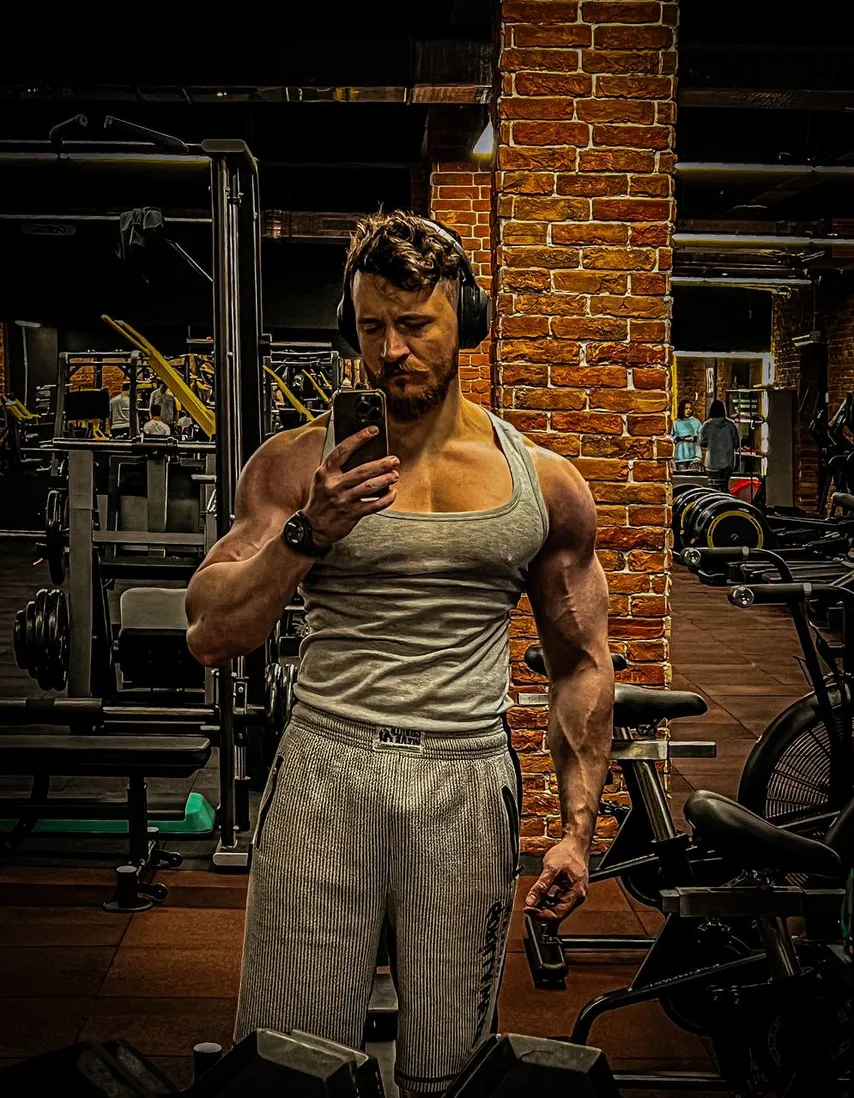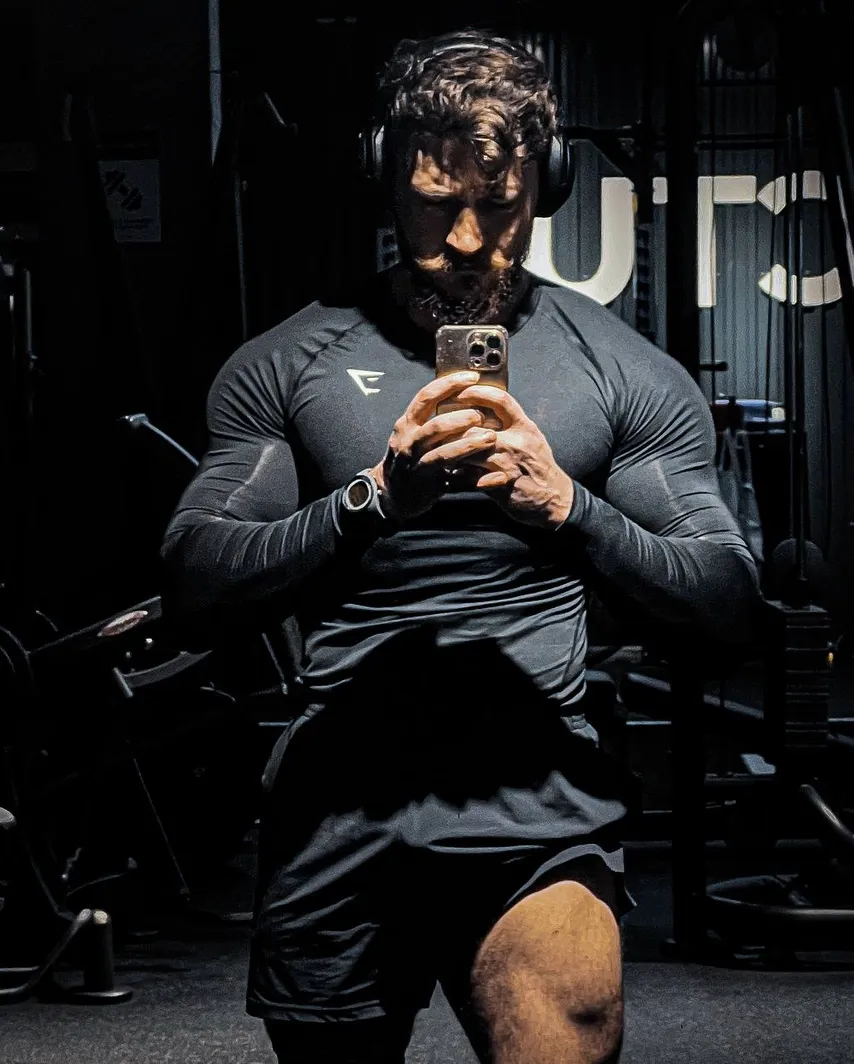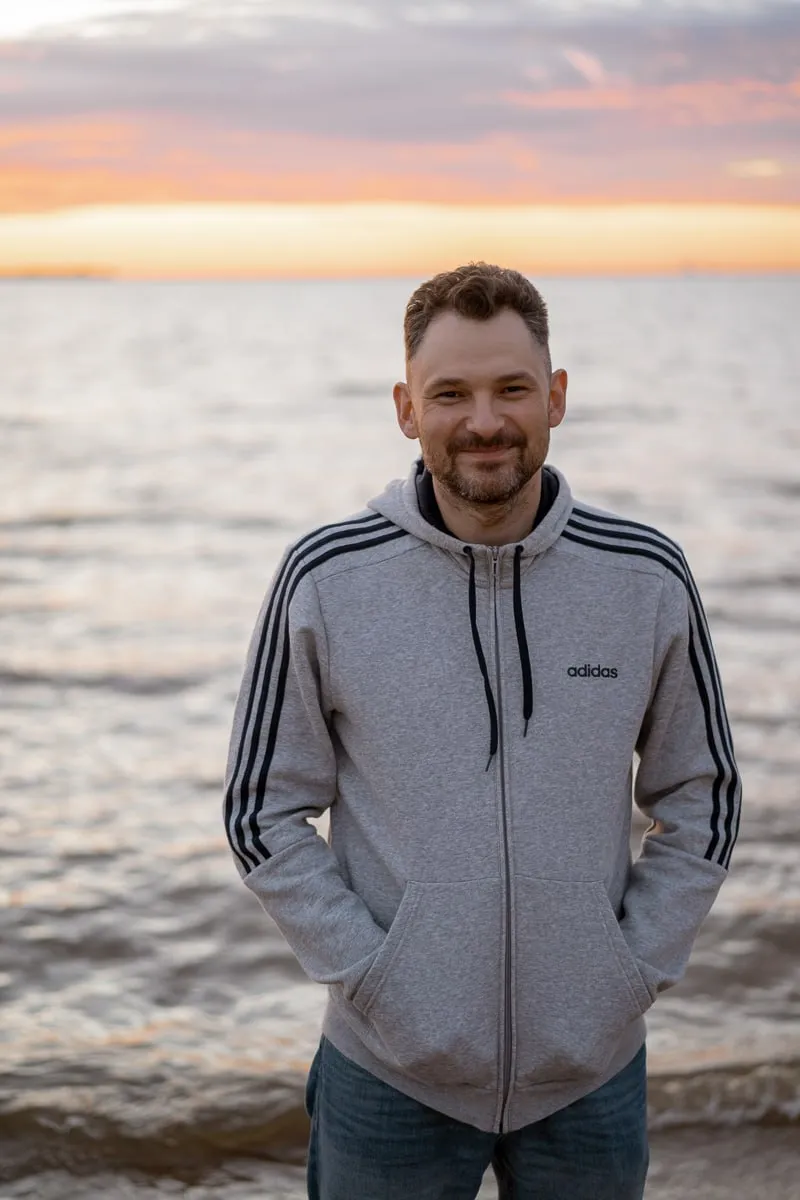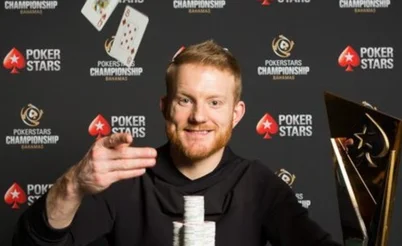We were lucky enough to hear from our international forum members about eliminating bad habits. They'll cover everything, from where they went astray to the approaches that got them on the right path.
Sasha shpr0ta // Do your duty, come what may.
My biggest problems are with alcohol and caffeine.
I use quite a lot of both, but I haven’t figured out how to solve these problems yet. This is what a typical alcoholic and coffee addict looks like. Alcohol is taking away my health and time. And if my health is still okay—I do check-ups, get tested, and feel relatively normal—then the time it takes is a big problem for me. I am a fairly disciplined person at work; I will never sit at a table even after a minimum amount of alcohol. In general, if I drank even a little, then we can say that for the rest of the day I will not be able to do any important things. It turns out that there is no work, no sports on this day; all I can do is rest. It turns out that alcohol takes away many hours of my productive life.

Accordingly, if I drink often, and now this is exactly what is happening, then I simply have a lot of evenings to waste. It could be three hours before bed, or it could be five, depending on what time I start drinking. It should be noted that I never get drunk; I drink little by little, but this is enough to divide the day into “before” and “after.”
For me, alcohol is a way to relax until I find something to replace it with. Most likely, the reason is that I simply don’t know how to relax in any other way, and drinking beer is an easy way to clear my head. I am a beer alcoholic; I really like the taste of beer and don’t drink anything else. At home, there is strong alcohol in the bar, but it sits untouched.
The last time I quit drinking alcohol was for eight months, and I didn’t drink at all. I broke on February 24, 2022. The condition was very serious, which is why I began to swell. Since then, I have not limited myself to alcohol, but I think about it.

I don’t see anything bad at all in coffee, but in the volumes that I drink, it’s most likely not very good for my health. I generally drink a lot of caffeine before working out. Coffee also has a bad effect on sleep, and therefore on recovery after sports. I'm trying to limit myself, but so far, it's been mediocre, to be honest. Firstly, I really like the taste, and secondly, I really feel a surge of energy. It’s very, very difficult to give up this habit, especially before going to the gym. Sometimes I replace coffee with tea, such as pu-erh tea.
Based on my previous experience, giving up something completely suits me better. I have never been able to limit myself in anything, to do something in doses; I constantly had breakdowns. Moreover, if you completely abandon something, then some progress may occur.
Pavel Rosc // Rosc.log
It seems to me that the main question is whether you need to limit yourself.
Do you feel discomfort, or does this habit prevent you from moving toward your goals?

If you realize that you have no control over a habit and it is diminishing your life's expected value, then this is one scenario where I think you need to take action.
If, despite having bad habits, you don’t feel any internal conflict, then it seems like you don’t need to do anything. We just keep going with the flow until we reach a point of discomfort.
I’m not analyzing a situation here where a person is not hindered by his bad habits, but is so aware that he decides to act proactively. This is rare, more of an exception, which, it seems to me, makes no sense to consider.
Personally, I had difficulties with the habits of "not taking risks" and "canceling everything at the last minute."
My process for dealing with bad habits looks like this:
- I set priorities—I choose the most harmful one for today.
- I justify to myself the benefits of limiting or acquiring a new habit. I do this vividly. I exaggerate.
- I break it down into tasks. I link the implementation steps to dates and numbers.
- I write down the steps in a task manager.
- I follow the new rules for a predetermined period.
- I reach the deadline, evaluate the benefits, and decide whether to go another round or not.
What are the habits that you are trying to overcome that are stopping you?
Basically, it's lost profit. Unrealized value.
What might cause me to lose my temper:
- Insufficient justification at the start of setting the problem.
- Changing priorities.
- Loss of motivation due to workload, fatigue, etc.
What works better for you—complete abandonment of something or control?
Both. Alcohol is a complete no-no. Sugar is a substitute.
It is important not to forget that as soon as we limit ourselves in something, we wind up a spring, which, in the case of mental weakness, will throw us back into an even deeper rut.
Have you managed to replace the habits with something else?
Certainly. And I believe that this is the key to success. We need to look for a replacement. You need to update your social circle if it is associated with a bad habit. There is no point in clinging to those who lead you astray, even if they are childhood friends. Those who wish you well will understand and step aside on their own, and those who do not will reveal themselves in such a way that you will draw the necessary conclusions.
And one last thing. Often, when you start building new habits, you have to leave your comfort zone and, as a result, there is a feeling of shame and worry about what people will think. Just be prepared. And I’ll add from my own experience: it doesn’t matter what they think; it’s all about your perception. A person decides for himself whether something will offend him or not.
Evgeniy zampolitik // Guli, Guli, SNGuli...
My worst habit today is calling a raise on the river!
Please send me a PM if you've overcome this; maybe there are secret pills? But seriously, everyone has bad habits. Some are obvious and visible to everyone, while others are hidden and not immediately apparent. Eventually, a person may (or may not) realize that a habit is harmful and begin to combat it. Many bad habits have been formed long ago and are deeply intertwined with life, making them unnoticeable to the "carrier of the habit," who might think, "I have always done this and will continue to do so."

I can share the most common habits I've managed to overcome—or perhaps I simply lost interest in them. I wouldn't say I had a fierce struggle with myself.
Social Networks: I attempted to post on Instagram a couple of times but did it clumsily and noticed that opening it meant disappearing for at least an hour—nothing useful, just a waste of time. So, I deleted it. At that time, it was impossible to open it without "crutches." Now, I don't use it. YouTube was another time waster. I once spoke with tBarbarian, who mentioned a program that disables all recommendations! I installed it, and now my YouTube screen is just a black background with a search bar—fantastic! You search only for what you need, avoiding distractions from clickbait. For example, Google Chrome has the DF Tube extension.
Other Social Platforms: I never spent much time on them because I didn't see the need. About 1.5-2 years ago, I deleted all my photos and then the pages themselves. You won't find me on social networks anymore. Discord—I didn't actively use it. Now, it consumes more of my time since communication with my coach at the foundation happens via Discord. But this isn't for entertainment; it's a work tool. Twitch—I had a plethora of subscriptions to various channels, mainly poker ones. I've recently "cleaned out" my Twitch subscriptions, leaving only a few streamers I enjoy. Since I eliminate all distractions while playing, I hardly watch streams—I simply don't have the time.
Television: I began questioning the necessity of this device in my life, probably when the St. Petersburg channel started airing the TV series "Sled" from morning to evening. It seemed like nothing else was happening in St. Petersburg. When I moved to a new apartment, I removed the TV cable during renovations and decided that the TV would only be used for internet access. There were three TVs then—in the kitchen, bedroom, and living room. My son didn't want a TV for himself, which was good. Of course, I used to turn it on after returning from work and watch something. But then, I clearly remember stopping watching everything except Zenit FC matches. And even then, when it became unclear what was happening with the team, I stopped watching football altogether. It's been probably 3-4 years since I watched it, only under "coercion"—if my wife is listening to something in the background, but even this is becoming less frequent. I might turn on a family movie, but that's all. There's no craving because I don't see what useful TV can offer me.
News: This became a problem in the fall of 2022. With the general turmoil in the country and "all sorts of papers" being distributed, we received lots and lots of coverage. Thus, I watched various news channel subscriptions, constantly monitoring, and all that. For two or three months, it was complete chaos in this regard. But one day, I asked myself, "What emotions does this news bring me?" The answer was "only negative ones." So, I deleted all the channels. Now, I'm only subscribed to poker games (a lot), and that's basically all.
- GipsyTeam's unique promotions
- Help with deposits and cashouts
- Access to private freerolls
- Round-the-clock support
- GipsyTeam's unique promotions
- Help with deposits and cashouts
- Access to private freerolls
- Round-the-clock support
- GipsyTeam's unique promotions
- Help with deposits and cashouts
- Access to private freerolls
- Round-the-clock support
- Уникальные акции от GipsyTeam
- Помощь с депозитами и кешаутами
- Доступ в закрытые фрироллы
- Круглосуточная поддержка
- Уникальные акции от GipsyTeam
- Помощь с депозитами и кешаутами
- Доступ в закрытые фрироллы
- Круглосуточная поддержка
- GipsyTeam's unique promotions
- Help with deposits and cashouts
- Access to private freerolls
- Round-the-clock support
- Уникальные акции от GipsyTeam
- Помощь с депозитами и кешаутами
- Доступ в закрытые фрироллы
- Круглосуточная поддержка
- GipsyTeam's unique promotions
- Help with deposits and cashouts
- Access to private freerolls
- Round-the-clock support
- GipsyTeam's unique promotions
- Help with deposits and cashouts
- Access to private freerolls
- Round-the-clock support
- GipsyTeam's unique promotions
- Help with deposits and cashouts
- Access to private freerolls
- Round-the-clock support
- GipsyTeam's unique promotions
- Help with deposits and cashouts
- Access to private freerolls
- Round-the-clock support
- GipsyTeam's unique promotions
- Help with deposits and cashouts
- Access to private freerolls
- Round-the-clock support
- GipsyTeam's unique promotions
- Help with deposits and cashouts
- Access to private freerolls
- Round-the-clock support
- GipsyTeam's unique promotions
- Help with deposits and cashouts
- Access to private freerolls
- Round-the-clock support
- GipsyTeam's unique promotions
- Help with deposits and cashouts
- Access to private freerolls
- Round-the-clock support
- GipsyTeam's unique promotions
- Help with deposits and cashouts
- Access to private freerolls
- Round-the-clock support
- GipsyTeam's unique promotions
- Help with deposits and cashouts
- Access to private freerolls
- Round-the-clock support
- GipsyTeam's unique promotions
- Help with deposits and cashouts
- Access to private freerolls
- Round-the-clock support
- GipsyTeam's unique promotions
- Help with deposits and cashouts
- Access to private freerolls
- Round-the-clock support
- GipsyTeam's unique promotions
- Help with deposits and cashouts
- Access to private freerolls
- Round-the-clock support
- GipsyTeam's unique promotions
- Help with deposits and cashouts
- Access to private freerolls
- Round-the-clock support
- GipsyTeam's unique promotions
- Help with deposits and cashouts
- Access to private freerolls
- Round-the-clock support
- Уникальные акции от GipsyTeam
- Помощь с депозитами и кешаутами
- Доступ в закрытые фрироллы
- Круглосуточная поддержка
- GipsyTeam's unique promotions
- Help with deposits and cashouts
- Access to private freerolls
- Round-the-clock support
- GipsyTeam's unique promotions
- Help with deposits and cashouts
- Access to private freerolls
- Round-the-clock support
- GipsyTeam's unique promotions
- Help with deposits and cashouts
- Access to private freerolls
- Round-the-clock support
- GipsyTeam's unique promotions
- Help with deposits and cashouts
- Access to private freerolls
- Round-the-clock support
- GipsyTeam's unique promotions
- Help with deposits and cashouts
- Access to private freerolls
- Round-the-clock support
- GipsyTeam's unique promotions
- Help with deposits and cashouts
- Access to private freerolls
- Round-the-clock support
- Уникальные акции от GipsyTeam
- Помощь с депозитами и кешаутами
- Доступ в закрытые фрироллы
- Круглосуточная поддержка
- GipsyTeam's unique promotions
- Help with deposits and cashouts
- Access to private freerolls
- Round-the-clock support
- GipsyTeam's unique promotions
- Help with deposits and cashouts
- Access to private freerolls
- Round-the-clock support
- Уникальные акции от GipsyTeam
- Помощь с депозитами и кешаутами
- Доступ в закрытые фрироллы
- Круглосуточная поддержка
- GipsyTeam's unique promotions
- Help with deposits and cashouts
- Access to private freerolls
- Round-the-clock support
- Уникальные акции от GipsyTeam
- Помощь с депозитами и кешаутами
- Доступ в закрытые фрироллы
- Круглосуточная поддержка
- Уникальные акции от GipsyTeam
- Помощь с депозитами и кешаутами
- Доступ в закрытые фрироллы
- Круглосуточная поддержка
- GipsyTeam's unique promotions
- Help with deposits and cashouts
- Access to private freerolls
- Round-the-clock support
- GipsyTeam's unique promotions
- Help with deposits and cashouts
- Access to private freerolls
- Round-the-clock support
- GipsyTeam's unique promotions
- Help with deposits and cashouts
- Access to private freerolls
- Round-the-clock support
- Уникальные акции от GipsyTeam
- Помощь с депозитами и кешаутами
- Доступ в закрытые фрироллы
- Круглосуточная поддержка
- GipsyTeam's unique promotions
- Help with deposits and cashouts
- Access to private freerolls
- Round-the-clock support
- GipsyTeam's unique promotions
- Help with deposits and cashouts
- Access to private freerolls
- Round-the-clock support
- GipsyTeam's unique promotions
- Help with deposits and cashouts
- Access to private freerolls
- Round-the-clock support
- GipsyTeam's unique promotions
- Help with deposits and cashouts
- Access to private freerolls
- Round-the-clock support
- Уникальные акции от GipsyTeam
- Помощь с депозитами и кешаутами
- Доступ в закрытые фрироллы
- Круглосуточная поддержка
- GipsyTeam's unique promotions
- Help with deposits and cashouts
- Access to private freerolls
- Round-the-clock support
- GipsyTeam's unique promotions
- Help with deposits and cashouts
- Access to private freerolls
- Round-the-clock support
Games: Tanks were part of my life for probably a year or two. With no success and lost interest, I deleted my account. I have a PS4. I played UFC3 almost constantly for a year and a half. Then I bought UFC4, played for a month, and sanctions were imposed. It became impossible to play online. Playing against bots wasn't interesting, so I stopped. Now, sometimes my youngest and I play football, but I stand no chance there, though it's nice for my son to beat his dad. This year, I bought a video card since they became cheaper, and I was building a PC purely for poker.
On June 7, I deleted everything not related to poker from my PC to avoid temptations. I held out for a long time, until December 10. During my next poker streak, I decided to take a break, which lasted 10 days. I replaced some cards with others and started playing Hearthstone. All the above "habits" simply took away my time, which I could have spent on poker or something more useful. Somewhere in the middle of the year, I concluded that I needed to limit what I spent my time on since I set a goal to become a poker pro. Now, I try to spend all my free time, which isn't much, as productively as possible—games, theory, books.
Nutrition: I think a person needs some kind of trigger to start thinking they have a bad habit. At least that was the case for me. In 2019, I found myself on a shift in the Yamal-Nenets Autonomous Okrug for a month and a half. The carriage was a town, the conditions weren't terrible, but the general dullness and melancholy led to me consuming a large can of instant coffee and 1 kg of sugar (a pack) within a week. I didn't move much. As a result, I gained 10 kg. I returned home, and the coffee and sugar habits continued, with alcohol added to the mix. This lasted for four months. I'm not a drunk, but alcohol was present (specifically beer), and it was there consistently. Drinking two liters in the evening became quite normal for me, and on weekends, I added strong alcohol to this mix (I can't drink wine). Eventually, I developed ulcers, then a second one... I decided something needed to change. I started researching and came across Basilio's YouTube channel. The author explains in simple language how you can get in shape without sports and diets. I just followed their advice.
I eliminated fast carbohydrates, sugar, alcohol, processed foods, and fast food. Giving up flour was the hardest, but eliminating potatoes, pasta, and rice was completely painless. But I discovered bulgur! And I can now distinguish buckwheat from different producers by taste. Sugar transitioned smoothly—first to sweetener, then to honey. Today, I haven't consumed sugar for 3-4 years, but honey has become a part of my life. Thanks to the forum, I found a great supplier of excellent honey. It turns out poker players can have not only "stables" but also apiaries. Alkohero produces excellent honey in Valdai. The weaning process was gentle, with no abrupt or strong refusals from anything. Some products were replaced by others, and gradually some disappeared altogether. Today, I can afford any food, for example, for a holiday or just because. But my main diet is "healthier," with a minimum of fast carbohydrates, canned food, seasonings, and store-bought sauces. I haven't eaten butter since the army. I only eat dark chocolate.
Alcohol: I haven't drunk alcohol since the beginning of June. One Saturday, I sat with a neighbor, and as a result, the following Sunday was almost entirely lost. I had planned to skate, but I was completely out of shape. And I decided that I wouldn't drink at all anymore. I tried to remember what benefit alcohol gave me. And I couldn't. So why drink it? Decision made, let's not waste time. The refusal was easy; I don't think I had an addiction. I still don't drink, having gone through several birthdays (including mine) and New Year's. I can say that it feels great. And most importantly, you won't feel sick the next day!
Tobacco: This is where it's most difficult. I've been smoking since the 9th grade. About six years ago, I replaced cigarettes with IQOS and started vaping at the same time. One day, while playing poker, I smoked almost a pack of sticks, and in the morning, my throat was incredibly sore. I immediately threw away all the sticks and settled on vaping. It's still with me. I can't quit yet. My brain isn't ready for this because it knows vaping isn't as dangerous as tobacco, which means it's permissible. But it's okay; I'll soon part with vaping too.
Coffee: I don't know how bad this habit is. There was a period when I completely gave up coffee, transitioning through chicory. I managed to quit in probably a week. I honestly don't remember how long I didn't drink coffee because I don't consider it a bad habit, and I also can't remember how I felt without coffee. Well, since I'm back with coffee, it means I wasn't enjoying myself. Now, I'm just trying to limit myself. Thanks to MaDzzz, I got a capsule coffee maker, and the coffee has become very tasty. I try not to drink more than two doses in the morning and one in the evening on weekdays. On weekends, I end up drinking 4-5 doses per day.
Casino: The story with slot machines began a long, long time ago. Now, I'm on pause (I hope it's over). I remained in the black. To avoid tempting fate, in rooms where possible, I hid the casino and blocked it. Where it wasn't possible to do it myself, I wrote to support, and they removed it for me. Otherwise, I might have been tempted to spin. But I'm a "poker pro," and I understand that this is gambling addiction.
To summarize my personal experience, the fight against bad habits for me looks like this:
- To start thinking, you need some kind of trigger.
- To break a habit, I need to explain to my brain the benefits I will get if I quit it.
- Giving up a bad habit is faster and easier if you replace it with something.
- Abstaining should bring pleasant sensations, and for this, you need to tune your brain to this process and the expected bonuses.
Slava Fenomenico // Mixing disciplines and limits...
I am a hedonist and value various pleasures in life above other aspects. I also love freedom in everything, making it difficult for me to limit myself in any way. Thus, I am a sweet tooth, an alcoholic, a gambling addict, and a procrastinator, to some extent. Poker, being a pretty stressful activity, often leads me to seek relief through these -manias and -isms. Therefore, during downswings, the urge to distract myself pushes me towards both conditionally and unconditionally bad habits.
Fighting these habits seems futile. The brain always finds a way to seek out serotonin, dopamine, oxytocin, and endorphins. If you restrict sweets and alcohol, you'll find yourself engrossed in a game or a series. If you cut off social networks, you'll start ordering unnecessary things online to please yourself. Hence, if a habit starts causing inconvenience, limiting it is an option, but be prepared for something else to emerge. The key is not to impose too many restrictions at once, allowing yourself an outlet somewhere.
Regarding work, I've gradually realized that a work session should remain just that, free from distractions like social networks or news feeds. Opening an extra table is a better option if boredom strikes. I also abstain from alcohol while working; if I choose to drink, I do it without half measures.
Nikita volgoNike // Success is a state of mind!!!
Sweets, alcohol/drugs, and checking results during games are aspects I find uncontrollable. Once I start eating sweets, I can't stop until everything is gone, sometimes even making a store run for more until I'm unbearably full.
I once quit sweets and easily digestible carbohydrates for a year, with Vitamin C (1,000 mg divided into 4-6 doses) helping me curb cravings. Alcohol and substance addiction require a systematic approach, which I'm willing to discuss privately.
The battle against habits and addictions starts with recognizing the problem and the need for a solution. Seeking support from those who have overcome similar challenges is beneficial during strong urges.
Focusing on short-term results while playing drains my energy, leading to tilt and poor performance. My inability to control my sweet intake has led to weight gain and the risk of chronic diseases. Although I see alcohol and drugs as manageable, I lack control over them.
I recently quit nicotine but relapsed on New Year’s Day after overeating and feeling unbearable pain. I decided to take a walk. Alcohol and drugs are complex issues; at one point, I saw no future prospects and thought there was nothing wrong with using them, even if it led to death.
What works better for you – complete abandonment or control?
For most habits, I opt for complete abandonment, but with porn, I allow myself to indulge once every two weeks. The issue was different, and I addressed it with medication, psychotherapy, and new social interactions.
Have you managed to replace the habits you were struggling with?
Yes, for alcohol and drugs, finding joy in giving them up and discovering pleasure in life and gratitude for everything that happens has been transformative. A new way of life.
Ruben Darkneofit // t.me/NeuroSkill
Mental coach
Before giving up on anything, it's crucial to assess whether your addiction is pathological. If so, consulting a psychiatrist, psychotherapist, or clinical psychologist is advisable.
For mere bad habits, the approach tends to be personalized. Generally, compiling a list of bad habits is wise, as tackling everything simultaneously can lead to a breakdown due to a significant shift from your comfort zone. A strategic method involves distinguishing between primary and secondary habits. For instance, focusing on quitting smoking and incorporating physical activity, with optional additions like healthy eating and establishing a daily routine, is advisable. Prioritizing control over primary habits is key.
Employing goal-setting practices, maintaining a journal of triggers, and identifying beneficial substitutions are effective strategies for abandoning bad habits. The greatest obstacle often is the obsession with optimization and, notably, the inability to view "failure" as a natural part of progress.
A total ban might be justified in cases of:
- Medium to hard drug use.
- Risks of developing physical illnesses or mental disorders (e.g., alcoholism, gambling addiction).
- Situations where dosage control is impossible, warranting temporary total abstinence until self-control skills are honed. Adapting and forming new neural pathways for moderation will require time.
I'm skeptical about the efficacy of rewards and punishments. While they may serve as temporary motivators, the brain typically finds a way to bypass external motivations, leading to the eventual abandonment of this strategy.
Instead of relying on quick dopamine hits as rewards, I advocate for viewing discipline itself as the reward. Integrating such pleasures organically into life allows for their enjoyment on our terms, rather than as scheduled rewards.
I believe that completely abstaining from substances and tobacco can significantly benefit individuals, though it may be challenging to implement. From my perspective, opting for total abstinence from substances and tobacco, while allowing minimal alcohol consumption (e.g., a few glasses of wine/beer 4-8 times a year on special occasions), is a prudent choice.





















